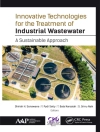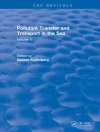Natural resources not only contribute to overall growth of the economy but also help reduce poverty by providing employment and food security to populations on the continent, and is thus the most inclusive growth sector of the economy of Asian countries. Global weather and climate studies are also increasingly being considered a vital source of information to understand the earth’s environment, in particular in the framework of weather and climate studies, land use transformation and human influence across these areas. Satellite earth observing systems provide a unique tool to monitor these changes.
This book includes significant and up to date contributions in the field of sustainable natural resources conservation across the globe. While the range of applications and innovative techniques is constantly increasing, this book provides a summary of key case studies where satellite data offers critical information to help understand the causes and effects of those environmental changes, allowing us to reflect on how to minimize their negative impacts.
This book is of interest to researchers and practitioners in the field of remote sensing, geographical information, meteorology, and environmental sciences. Scientists and graduate to post-graduate-level students in environmental science will also find valuable information in this book.
قائمة المحتويات
1. Sustainable Natural Resource Conservation: An Overview.- 2. Conservation of the ecosystem.- 3. Wetlands Conservation and Restoration for Ecosystem Services.- 4. Potential of Joint Forest Management in agro biodiversity conservation.- 5. Molecular approaches in conservation and restoration of agro-biodiversity.- 6. Cultural Ecosystem Services: Key Concepts and Application.- 7. Contributions of Cultural Services to the Ecosystem Services.- 8. Wild edible plants and ecosystem services: a case study from Indian North Eastern Himalayas.- 9. Soil organic carbon and total nitrogen stocks under different land uses in Central India.- 10. Managing the Value Chain of Agricultural Commodities: A Cardinal Pillar for Future Development and Management.- 11. Agro Biodiversity, Status and Conservation Strategies: An Indian Perspective.- 12. Role of Range Grasses in Conservation and Restoration of Land.- 13. Change Detection and Assessment Land Degradation in Quarter of Century.- 14. Influence of anthropogenic activities on forest structure and diversity through the satellite based monitoring system.- 15. GIS-Remote Sensing and Sensor Technology: Emerging New Era Modern Tools for Land Degradation.
عن المؤلف
Dr. Meenu Rani is Researcher in the Department of Geography, Kumaun University, Nainital, Uttarakhand, India. She received her M. Tech degree in Remote Sensing from Birla Institute of Technology, Ranchi, India. She has a working experience in the major disciplines of agriculture and forestry while working with Haryana Space Application Centre, Indian Council of Agricultural Research, and GB Pant National Institute of Himalayan Environment and Sustainable Development. She has authored several peer-reviewed scientific research papers and presented works at many national and international conferences in the USA, Italy, and China. She has been awarded with various fellowships from the International Association for Ecology, Future Earth Coast, and SCAR Scientific Research Programme. She was awarded early career scientists achievement in 2017 at Columbia University, New York, USA.
Dr. B. S. Chaudhary is presently working as Professor at the Department of Geophysics, Kurukshetra University, Kurukshetra (Haryana), India. Before joining Kurukshetra University, Kurukshetra, in August 2004, he has worked as Scientist (Geology/ Geophysics) at Haryana Space Application Centre (HARSAC), Hisar, from July 1990 to August 2004. He is working in the domain of remote sensing and GIS applications for natural resources mapping and management specializing in water resources, geoenvironmental studies, and disaster management. He has 4 Ph.D.’s to his credit and supervising 5 Ph.D.’s at present in the domain of ground water, snowmelt runoff, snowpack characterization, watershed conservation, and management. He has over 70 publications in various national/international journals and conference proceedings. He is the fellow of Indian Water Resources Society, South Asian Association of Economic Geologists, and the Society of Earth Scientists and Life Member of ten national/ international scientific societies/ academic associations. He is the recipient of DAAD (German Academic Exchange Services) fellowship at University of Freiburg, Germany, from 1997-1999 and visited the countries like USA, UK, Austria, Germany, the Netherlands, Switzerland, Poland, China, Indonesia, Bangladesh, and Thailand for various academic/ scientific assignments and conferences. He is Member of the Editorial Board of prestigious journals like Journal of Biodiversity, International Journal of Information technology and Knowledge Management (IJITKM), Geographic Information System & Technology, International Journal of Environment and Member of International Advisory Committee “GEOCHANGE.” He is also acting as Reviewer for International Journal of Earth Sciences & Engineering, Journal of the Indian Society of Remote Sensing, Applied Geoinformatics for Society and Environment, International Journal of Human Ecology, International Journal of Environment and International Journal of Advancement of Remote Sensing, GIS and Geography.
Dr. Saleha Jamal is Associate Professor in Department of Geography, Aligarh Muslim University, New Delhi, India. She awarded “Post Graduate Merit Scholarship” in Post Graduation for the session 2006-07 and 2007-08 and also awarded U.G.C sponsored “Maulana Azad National Fellowship” of 2009. She has 11 years of research and 08 years of teaching experience with a publication record of more than 40, which includes research articles, review papers, conference papers, chapters, and books with national and international repute. She is reviewing research articles for a number of scientific journals and has handled research projects in his capacity as PI and Co Pi. Her research in forestry includes conservation of biodiversity, traditional knowledge of plants, and sustainable management of forest resources. Her main focus of research is on vegetation ecology and evaluation of ecosystem services, forest plant biodiversity, climate change, and sociocultural issues in forestry.
Dr. Pavan Kumar is Faculty of College of Horticulture and Forestry, Rani Lakshmi Bai Central Agricultural University, Jhansi, U.P., India. He obtained his Ph.D. degrees from Faculty of Natural Sciences, Jamia Millia Islamia, New Delhi. He did B.Sc. (Botany) and M.Sc. (Environmental Science) from Banaras Hindu University, Varanasi, India, and subsequently obtained master’s degree in Remote Sensing (M. Tech) from Birla Institute of Technology, Mesra Ranchi, India. His current research interests include resilient agriculture and climate change studies. He is recipient of Innovation China National Academy Award for Remote Sensing. He has published fifty research papers in international journals and authored several books. He has visited countries like USA, France, the Netherlands, Italy, China, Indonesia, Brazil, and Malaysia for various academic/scientific assignments, workshop, and conferences. She is Member of International Associations for Vegetation Science, USA, and Institution of Geospatial and Remote Sensing, Malaysia.












